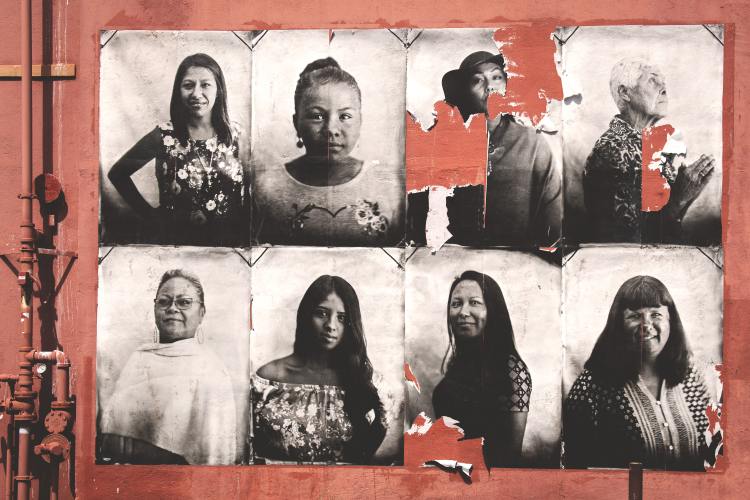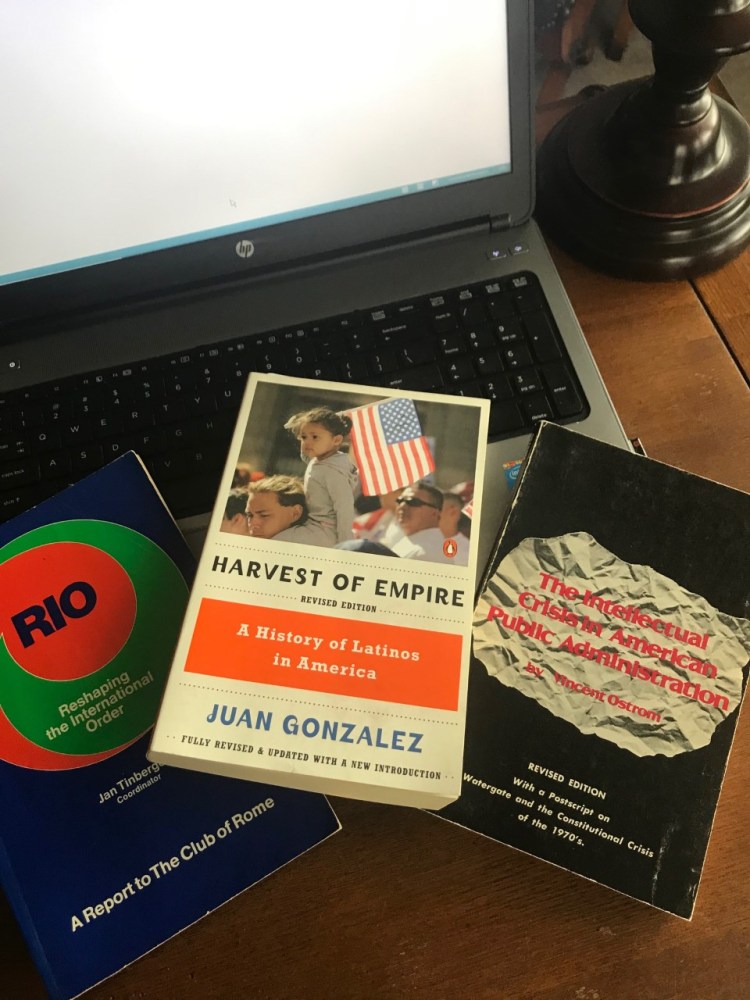
“La unica lucha que se pierde, es la lucha que se abandona”
We Are

“La Veredita” (The Path), chartered as a non-profit, 501(c)(3) corporation, is the construct of vision, years of examination and many years working in business, government and academic disciplines related to issues affecting American Latinos and conversely, the influence by Latinos in virtually every segment of American society. The significant number of Latinos in the U.S. (over 60 million) is driving the necessity to study, analyze and disseminate information about how Latinos, as a driving force in the U.S. economy, fare in other areas or aspects of our society. As founder, my personal goal and desire is to engage business leaders, academicians, health practitioners, public policymakers, Latino community leaders and others, in actionable intellectual discussions about the issues I’ve mentioned above, disseminate information and encourage participation from a much broader community that will result in transformative public policy affecting the Latino community.
In 2015, a study undertaken by the Partnership for a New American Economy Research Fund, pointed to these stark U.S. statistics – in summary – Latinos made up one-third (1/3) of the agricultural workforce. We represented more than one-fourth (1/4) of the construction workforce; and accounted for more than one-in-seven of the country’s entrepreneurs. Those numbers have grown since 2015 and will continue to do so, according to demographers and social scientists.
Additional empirical data – In 2019 American Latina women were paid at a rate of fifty-seven percent (57%) of the average U.S. wage. Why is that, and what does it mean, contextually, to the economic status of eighteen percent (18%) of the U.S. population? What does this single stark statistic mean to the overall U.S. economy? Does the disparate earnings of Latinas affect the health, academic or social status of all Latinos in the U.S. – if so, how?
American economists, sociologists, historians, politicians, political prognosticators and others recognize that these and many other issues about our American Latino population are important and relevant in 21st century America. It is predicted that by the year 2050 Latino citizenry will represent the largest U.S. ethnic group, 30% of the population. What does all this mean? How is the ‘general’ American citizenry affected by this significant increase in the Latino population? What does this mean to American industry, business, academic institutions, health-delivery systems and the rest?
We don’t have precise answers to all those questions – but with a history of over five-hundred (500) years of Latinos residing and traveling most of what is now the contiguous United States, there are some ‘paths’ (Vereditas) to pursue and new ones to uncover.
Libraries, private research institutions and academic institutions – repositories of vast amounts of empirical data (as cited above) provide us an opaque picture of the status of American Latinos. These data exist in various forms and formats and usually structured in a manner defined by the purpose of the ‘study’ that provided the data – economic, academic, health, etc. The research that provided these data was probably focused on one particular discipline – factor (economic, health, academia, etc.) affecting, or affected by the Latino population.
What is not as readily available is correlative data analysis that may demonstrate, in quantitative or qualitative terms, for example, the impact of proposed healthcare policies on matters of education or the impact of environmental public policy initiatives on Latino employment; or retrospectively, the impact/results of those policy changes.
From a broad perspective, results of these types of analysis may ‘seem’ intuitive. It would seem reasonable to expect, for example, that healthcare policies that adversely affect Latinos would also adversely affect their education. Quantifying those results will provide the impetus for a more critical review of those policies. This is one of our goals.
We gather empirical data and/or conduct the research that will provide data needed to demonstrate causal/effect results (on American Latinos or by Latinos) of existing public policy, proposed policies and decisions made by commerce and industry officials – decisions made by academic institutions and policy decisions made by officials in the healthcare industry, for example. We wish to accomplish our goals with assistance, participation and input from business, industry, academic, health, public institutions and individuals.
We welcome your ideas, criticisms or concerns.
A Brief History

In various quarters of the broader Latino community in the United States, there are ongoing discussions, sometimes disagreements and occasional ad hominem debates about ‘who’ we are – our origins, vis-à-vis, our “Americanism”. Those discussions are arguably inconsequential, since the basis for those discussions have to do with our Iberian kin who first came to the Americas over five-hundred (500) years ago. Since then the “family tree” has expanded its branches throughout the Americas and includes indigenous communities-First Americans, African and Afro-Iberian communities, European communities and others. We are the resultant “mezcla”– mélange, contributing to our country’s characterization as the ‘melting pot’ society.
Our history as a welcoming nation has not always been accurately depicted by the motto ascribed to our de facto immigration policy…”Give me your tired, your poor, Your huddled masses yearning to breathe free…” We were off to a bad start with the slave trade and continued our insidious discriminatory policies.
I mention this only because the ‘larger’ American Latino community members is made up of mostly Mexican, Puerto Rican, Cuban, Central American and South Americans whose heritages and experiences may be evolutionarily distinct, but we do share language and some cultural similarities. We also share a long history of disparate treatment in employment, housing, healthcare, education and almost every other measureable standard of well-being in the U.S.
Only a few decades ago, during the 1930’s depression, upward of 600,000 Mexican Americans were sent to Mexico illegally – under federal government orders. The government’s claim – Mexican Americans were taking jobs away from its ‘anglo’ (white) citizens. This became known as “Mexican Repatriation”. The U.S. never formally apologized for the unconstitutional act of deporting American citizens.
Our American history is replete with demonstrative disdain for ‘the newcomers’. We’re all familiar with the treatment of Irish and Italian immigrants, and others. Slowly, assimilation and acculturation (to some extent) takes hold and we mostly become ‘good neighbors’.
America has become the world’s melting pot, albeit some immigrants more graciously and openly received than others – witness the treatment of some of our Central American neighbors seeking asylum. The right to petition our government for asylum is codified in our federal statutes. Yet, in violation of our federal laws, many of our Central American neighbors have been denied their legal right to seek asylum.
A more recent example of disparate treatment suffered by Americans of color, including Latinos, is the impact of the COVID-19 virus that began in 2020. Because Latinos are overrepresented in industries hardest hit by the virus, we have suffered disproportionate larger numbers in unemployment. Adding to that tragedy is the empirical fact that Latinos are four (4) more likely to be hospitalized over contracting COVID-19 than their ‘white’ counterparts.
American corporate and public policy can profoundly impact the lives of American citizens, positively and negatively. We are aware of past policies that were promulgated precisely to achieve negative impacts on our American Latino population.
The benefit of centuries-worth of empirical information has served as a transformative tool in public policy development that addresses disparate treatment of many of our fellow Americans. In spite of that recognition, American Latinos, who have “walked” this land for over four-hundred (400) years still share a lower rung of the American ‘equality’ ladder with our other brothers and sisters of color.
A Process – Intellectualism, Academia

This is a group of blocks in columns. Column layouts can be adapted to fit different needs.
Tools – Empiricism, Research

This is a group of blocks in columns. Column layouts can be adapted to fit different needs.
Methods and Strategies

This is a group of blocks in columns. Column layouts can be adapted to fit different needs.